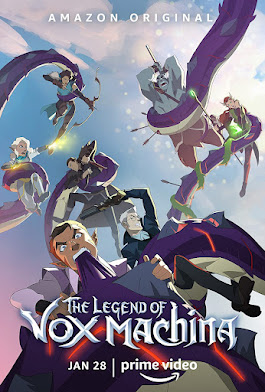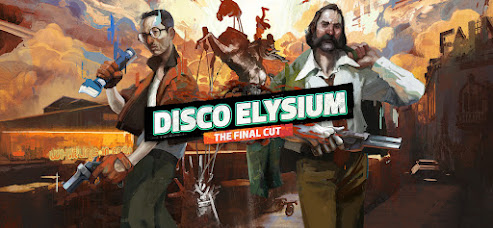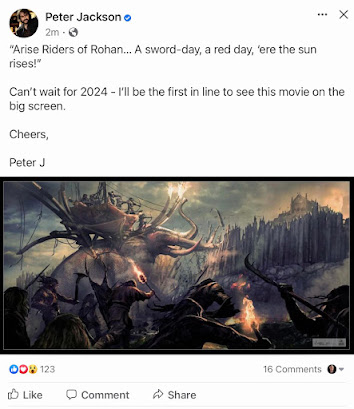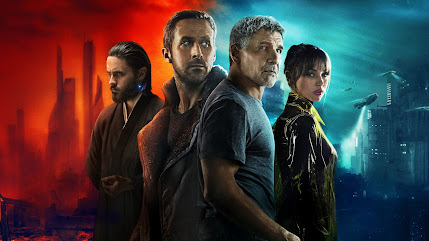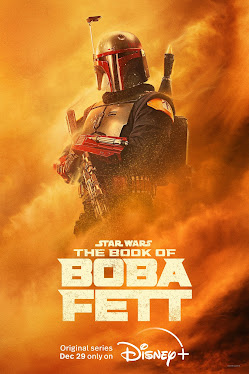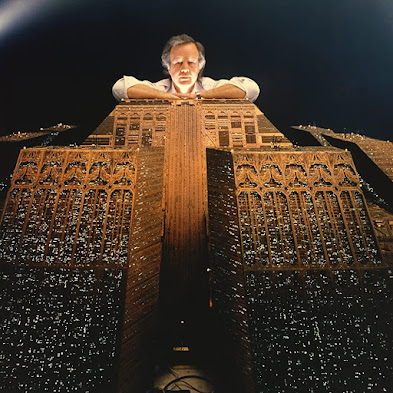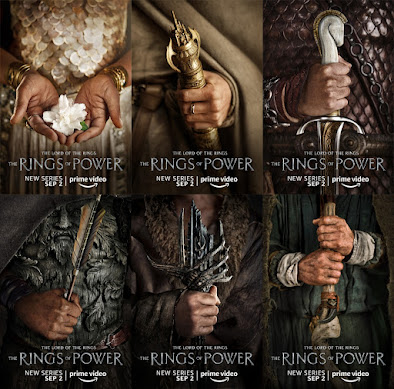Famed mercenary Boba Fett has laid claim to the former palace and territory of the crime lord Jabba the Hutt. The civic and criminal gangs which rule Tatooine warily watch to see how events will pan out, with Fett having to fend off challenges from Jabba's cousins, the Twins, and the merciless Pyke Syndicate. As Fett struggles to rule through respect, rather than fear, he revisits his past, how he escaped the Sarlaac beast and how his recovery was helped by unxpected allies.
The Book of Boba Fett is the long, long-awaited Star Wars spin-off focusing on the titular bounty hunter. A fan-favourite character ever since since he debuted in the otherwise woeful Star Wars Holiday Special, Fett received only limited screentime in the original trilogy, adding to his mystique, but was given more backstory in the prequel trilogy and the Clone Wars animated series. The second season of The Mandalorian saw his return as a grizzled veteran out to settle scores.
This series establishes a format it follows through its first four episodes: we follow both a present-day storyline as Fett wrestles with taking and keeping control of Mos Espa and also extensive flashbacks explaining how he survived the events of Return of the Jedi. Sometimes the flashbacks are dominant and the present-day storyline only gets a few scenes and sometimes the reverse. There is one key problem with this narrative structure: neither story has enough juice or momentum to warrant its screen time individually, let alone together.
The flashback stories flirt with dull colonialist tropes as Boba Fett teaches some Tusken Raiders how to be better warriors, whilst their acceptance of him into their tribe teaches him compassion and honour. This is set up to explain why Fett is now kinder, more willing to make friends and allies than the lone-wolf bounty hunter he was first introduced as. In the present day, we see Fett and ally Fennec Shand (Ming-Na Wen) attempting to bring justice to the streets of Mos Espa through respect rather than fear. However, it all feels a bit half-hearted. Jabba inspired fear and respect through his ruthless crushing of the opposition and his power being backed by the Hutts. Boba has no such power base and it's unclear how he and effectively one hired gun and a bunch of droids can hope to replicate Jabba's power. This sets up a storyline as he recruits allies, including an irate Wookie bounty-hunter, a new pet rancor and a bunch of cyborg "mods" who race around the streets of Most Espa on hover-Vespas. It all feels a bit random, especially as the show sets up formidable enemies in the form of a brother and sister team of Hutts, but then immediately exiles them from the story in favour of the altogether vaguer Pyke Syndicate.
The Book of Boba Fett loses its story thread several times in the first four episodes, leaving the viewer to scratch their head about what the through-line of this series is. If Fett is no longer a ruthless, amoral bounty-hunter, why does he want to be a ruthless, amoral crime lord? If he learned respect and honour from the Tuskens living a simple life in the desert, why is he proceeding to take over the big cities with morasses of competing interests? It doesn't help that the show introduces potentially interesting characters and subplots and then does nothing with them.
Jennifer Beals plays the owner of a high-class cantina in Mos Espa and it's hinted that she has an interesting agenda. However, neither her character nor the stories of her cantina are fleshed out in any way. The exceptional Sophie Thatcher from
Yellowjackets plays Drash, the leader of the cyborgs biker gang, and gets virtually nothing to do other than take part in a couple of very half-heated action sequences. Why does the Mod gang join forces with Boba? How does he retain their loyalty? Why does everyone treat Boba as a respected and honoured warrior when five seconds ago he was a feared, amoral bounty hunter and ruthless criminal? Why cast Danny Trejo in a fun role and do absolutely nothing more with him?
The Book of Boba Fett does remain watchable thanks to some sharp action set-pieces (particularly a fun train heist), but these questions keep mounting, leaving the viewer scratching their head on why anything is happening. Then the show takes a hard left-turn into real non-sequitur randomness.
With its fifth and sixth episodes, The Book of Boba Fett abruptly turns into Season 2.5 of The Mandalorian. We rejoin the adventures of Din Djarin as he learns to master the Darksabre and tries to pay a visit to Grogu (aka Baby Yoda). The problems with the rest of the series abruptly disappear as the show gains focus and clarity...at the expense of its lead character. Boba Fett disappears for most of these two episodes and instead we get a concentrated thermonuclear blast of fan-service. R2-D2! Luke Skywalker! Ahsoka Tano! Cad Bane! Timothy Olyphant's lawman guy! That X-wing guy! It's all fun and well-handled, but also feels incredibly off-target.
Eventually the producers seem to remember this is the Boba Fett show and re-team the Mandalorian and Boba Fett for the finale, which does almost lives up to its billing. We get a reasonably impressive and long battle sequence, featuring rancors climbing buildings, gigantic versions of the destroyer droids from The Phantom Menace and more. It's visually impressive, if mildly incoherent: a droid fails to gun down Fett's assorted allies when they are standing five feet away and its powerful turbolasers, which took out an armoured personnel carrier in five seconds, is now unable to make much of an impression on a relatively thin stone wall.
Of course, applying cast-iron logic to Star Wars is not a winning strategy, so overlooking such pedantry there is some fun to be had from these battle scenes, particularly the two Mandalorian-armoured warriors working out a rhythm as they learn how to fight as a team (albeit a team that has apparently never heard of the term "cover"). Fett's assembled allies get a bit more time in the sun and story ends in a reasonably interesting place. But it all feels a bit underwhelming.
Some of the problems can be ascribed to the fact that The Mandalorian has just featured two seasons of a taciturn, badass warrior wearing Mandalorian armour and sorting out business, so having a third, and considerably more weakly-plotted, season of exactly the same thing feels redundant. Other issues can be perhaps ascribed to the problems of having a lead actor in his sixties being supposedly an accomplished warrior. Don't get me wrong, Temuera Morrison could certainly break most twenty-year olds in half, but Boba definitely does not live up to his lethal billing as a fighter here. The show also doesn't really address the age problem: Boba should only be around 41 years old at this point, so it's unclear why he looks and acts like a guy twenty years older, aside from the fanservice of using the "right" actor. They'd have been better using Daniel Logan who played the younger Fett in Attack of the Clones who is now in his mid-thirties and would be a better fit for the character's age, or setting the show twenty years later and focusing on a story about an older Boba facing retirement and obsolescence, although of course that would have reduced the chances for tying into the Mandalorian's storyline.
As the first season of The Book of Boba Fett (***), the show just about remains watchable through some effective action sequences, a few nice comic asides and Ming-Na Wen stealing every scene she's in. As an interlude of The Mandalorian (****), the show is altogether more successful, catching us up on what Din and Grogu are up to and setting up Season 3 of The Mandalorian in style. As a show overall, it feels lopsided, and, disappointingly, is at its weakest whenever Boba Fett and his confused motivations are on screen. The season is available now on Disney+ worldwide.


